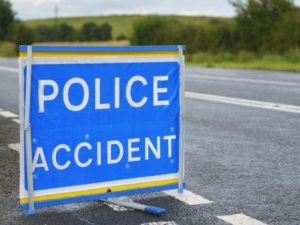Dangerous drivers escaping justice, warns new report
Dangerous driving prosecutions are being hampered by funding cuts and charging inconsistencies, leading to drivers escaping justice.

Too many prosecutions for dangerous driving fail to materialise, according to the researchers from the University of Leicester
That’s according to researchers from the University of Leicester, led by Professor Sally Kyd, as they claim that too many prosecutions for dangerous driving fail to materialise, due to lack of funding and regional inconsistencies in Crown Prosecution Service (CPS) demands on police.
Published in a final report for a research project funded by the Road Safety Trust, the research looked at the examination and enforcement of the offences of careless driving, dangerous driving and using a mobile phone whilst driving.
Although police can prosecute careless driving, the current charging scheme means they must prepare a CPS advice file for dangerous driving, which Professor Kyd said brought a heavy burden on already overworked officers.
She claimed that this tended to lead, especially in borderline cases, to officers choosing to charge the lesser offence of careless driving.
Kyd continued: “We also found that different CPS areas made different demands on the police in the preparation of files, while officers expressed frustration with the CPS’s definition of dangerous driving, particularly in cases not involving a collision.
Kyd said that the research also showed some inconsistencies in approach. As such, the report says the CPS should be more willing to consider prosecuting for the dangerous driving offence than it has been, and also called for the CPS to be properly resourced, with specialist road traffic prosecutors working closely with police colleagues.
The research also looked at cases against drivers for mobile phone usage and found that some are being lost due to ambiguous wording in offence definition.
“Whilst frontline officers perceived this to be a straightforward offence, their Traffic Process Unit colleagues noted a possible ambiguity in the offence definition, such as when a mobile is ‘handheld’ and when it is being used. Cases have been lost due to this ambiguity. Also, some forces still offer education courses for mobile phone offenders, despite Government recommendations to the contrary,” Kyd explained.
In response, the researchers have called for police to record more information when reporting such offences and say the offence definition for the use of a mobile phone whilst driving should be reviewed and redrafted.
The research team also looked at the growing use of third-party dashcam and other digital footage, which represented an ‘efficient means of enforcement’ akin to neighbourhood watch schemes, according to Dr Steven Cammiss, who worked alongside Professor Kyd on the project.
“There is, however, a degree of variability in the extent to which such submissions lead to a positive enforcement outcome, suggesting a problem of ‘postcode justice’,” he added.
As such, he urged police and Crown Prosecution Service to correct this by agreeing how decisions to prosecute are made.
The report also recognises that innovative initiatives are being used by some forces in order to promote enforcement and protect vulnerable road users, such as Operation Close Pass, and calls for them to be adopted by other forces. And it also urges police forces to keep the work of their traffic process units (TPUs) under review, with a view to ensuring effective and consistent decision-making.
Commenting on the report’s findings, a CPS spokesperson said: “When driving cases are referred to us by the police we will always charge if our legal test for prosecution is met.
“Financial considerations play no part in our decision making.












